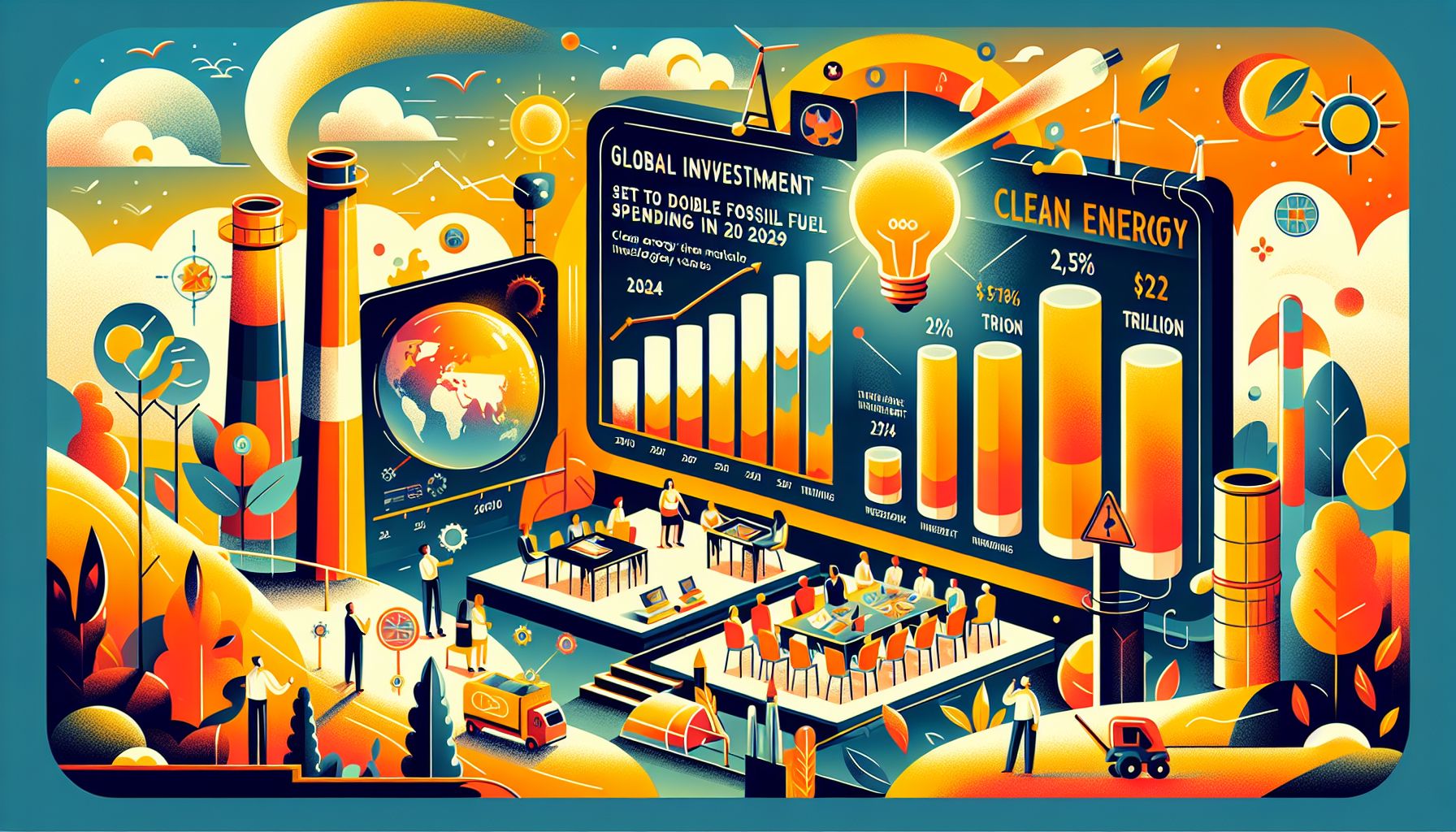Global Investment in Clean Energy Set to Double Fossil Fuel Spending in 2024

The world is investing nearly twice as much in clean energy technologies compared to fossil fuels, with total clean energy investments expected to reach $2 trillion in 2024.
China Leads the Charge
China is at the forefront of this global shift, with an estimated $675 billion allocated to clean energy investments in 2024. The country’s substantial expenditure is focused on three primary sectors: solar energy, lithium batteries, and electric vehicles (EVs). This investment is a testament to China’s commitment to reducing its carbon footprint and leading the way in sustainable energy development[1][2].
Europe and the US Follow
Europe and the United States are also major contributors to the surge in clean energy investments, with Europe expected to invest around $370 billion and the US approximately $315 billion. Together, these three economies—China, Europe, and the US—account for over two-thirds of the global investment in clean energy this year. This collective effort highlights the significant role these regions play in driving the global transition towards sustainable energy[2][3].
Sector-specific Investments
The International Energy Agency (IEA) report underscores that the majority of these investments are directed towards renewable energy technologies, electric vehicles, nuclear power, and energy storage solutions. Notably, solar photovoltaic (PV) technology is receiving more investment than any other form of electricity generation, with an expected $500 billion in 2024. This focus on solar energy reflects its growing affordability and efficiency, making it a cornerstone of global clean energy strategies[1][3][4].
Challenges and Imbalances
Despite the encouraging trends, there are significant disparities in how clean energy investments are distributed globally. Many emerging and developing economies, particularly outside China, are not receiving the necessary funding to meet their energy needs. The IEA highlights that these regions account for only about 15% of global clean energy investment. The high cost of capital and other barriers are preventing these countries from fully participating in the clean energy transition, which is crucial for addressing global energy demand and climate goals[2][3].
Future Prospects
Looking ahead, the IEA emphasizes the need for increased investment in clean energy technologies to ensure a sustainable and secure energy future. The rapid rollout of these technologies not only promises to make energy cheaper in the long run but also enhances energy security by reducing dependence on fossil fuels. Governments and private sectors worldwide are urged to continue scaling up their efforts to bridge the investment gap, particularly in regions that are currently underserved[4][5].

